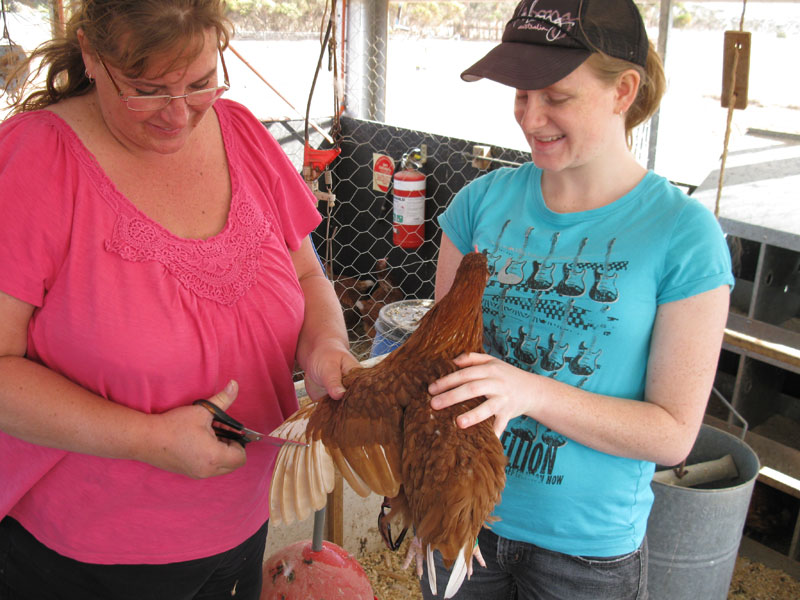The Poultry CRC invests significantly in the development of young scientists for the future benefit of the poultry industry, so we maintain a keen interest in their blossoming careers.
Now in its seventh and final year, the CRC’s Education Program is well and truly bearing fruit. Several of the CRC’s students and scientists have gone on to secure roles in industry or the education sector. One of the first students supported by the Poultry CRC, Dr Jesse Thomas, is now working with global biopharmaceutical company, CSL. CSL uses embryonated eggs to make vaccines, including the in-demand ‘swine flu’ vaccine. Jesse completed his PhD through The University of Melbourne under the supervision of Poultry CRC Project Leader, Dr Andrew Bean, at CSIRO’s Australian Animal Health Laboratory in Geelong. He then had a year with Bioproperties through an internship co-funded by the CRC.
The University of Adelaide’s Emma Borland, currently completing her honours degree in Animal Science, has been awarded an Internship to explore the use of shelter belts on free range egg farms. Emma will spend a week on a Queensland farm this month to see if the hypotheses tested during her studies at SARDI apply to a real world commercial setting.
“It’s an opportunity to go from working with around 120 birds to working with more than 3000,” said Emma.
The aim of the project is to determine if birds spend a greater percentage of their time in the range when provided with shelter belts and if this influences bird condition, feather pecking, cannibalism, and production. Shelter belts consist of trees in pots as well as shrubs so that they can be easily moved to different locations in the range.
“The visit will also provide me with an opportunity to meet with other people in the free range farming industry and improve my knowledge of the egg industry.”
Another of the University of Adelaide’s rising stars has also found the limelight, with CRC honours student, Helen Golder, scooping the prize pool at the university awards night. Helen won three prestigious awards: The Australian Institute of Agricultural Science and Technology (SA branch) Prize for the most distinguished student completing the degree; The Mark Paul Bowker Prize for the student who gains the highest aggregate in the courses Communication in the Agri-Food Industry and Agricultural Experimentation, and The Peter Waite Medal for the student completing the degree with the most distinguished record. Helen is clearly blossoming under the influence of CRC researcher, Dr Mark Geier, and former CRC student, Dr Bec Forder, and we hope this extremely talented young scientist decides to go on and do a PhD in poultry.
Dr Kapil Chousalkar will be relocating from Armidale to Wagga Wagga in August to take up a position of Lecturer in the School of Animal and Veterinary Sciences at Charles Sturt University.
Kapil has been at the University of New England with the CRC’s Julie Roberts since 2005, conducting AECL-funded research on infectious bronchitis virus, food safety and egg quality.
“I’m looking forward to teaching the vet school students,” said Kapil, “and doing some more research into food safety, egg quality and diagnostics.”
The CRC wishes Kapil, Jesse, Emma and Helen all the best for the future!


